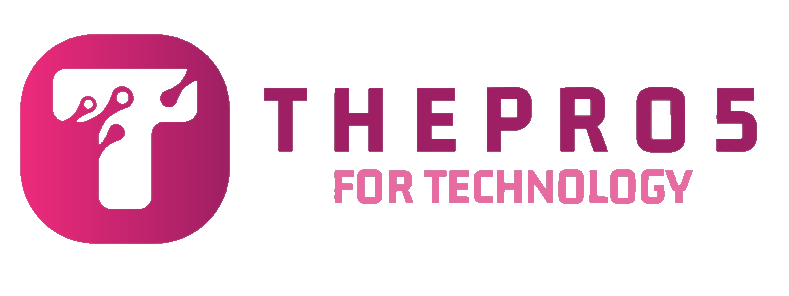table of contents
1. Artificial intelligence (AI) and machine learning
2. Robotic Process Automation (RPA)
3. Edge computing 4. Quantum computing
5. Virtual Reality and Augmented Reality
Technology today is evolving at a rapid pace, enabling faster change and progress, causing an acceleration of the rate of change. However, it is not only technology trends and emerging technologies that are evolving, a lot more has changed this year due to the outbreak of COVID-19 making IT professionals realize that their role will not stay the same in the contactless world tomorrow. And an IT professional in 2021-22 will constantly be learning, unlearning, and relearning (out of necessity if not desire).
What does this mean for you? This means keeping up with emerging technologies and the latest technology trends. This means keeping your eyes on the future for the skills you'll need to know to secure a secure job tomorrow and even learning how to get there. With all this pandemic going around the world, most of the IT workers around the world are holding back and working from their homes. And if you want to make the most of your time at home, here are the top 9 emerging technology trends that you should monitor and try in 2022, and possibly secure one of the jobs that will be created by these new technology trends, which include:
- Artificial intelligence and machine learning.
- Robotic Process Automation (RPA).
- Edge computing.
- Quantitative statistics.
- Virtual reality and augmented reality.
- Blockchain.
- Internet of Things (IoT).
- Fifth generation network.
- Electronic security.
1. Artificial Intelligence (AI) and Machine Learning
- artificial intelligence research scientist
- Artificial intelligence engineer
- Machine learning engineer
- Artificial intelligence engineer
2. Robotic Process Automation (RPA)
Like artificial intelligence and machine learning, robotic process automation, or RPA, is another technology that automates jobs. RPA is the use of software to automate business processes such as interpreting applications, processing transactions, handling data, and even answering emails. RPA automates repetitive tasks that people used to do.
Although Forrester Research estimates that RPA will threaten the livelihoods of 230 million or more knowledge workers or roughly 9 percent of the global workforce, RPA is also creating new jobs while altering existing ones. McKinsey found that less than 5 percent of jobs can be fully automated, but about 60 percent can be partially automated.
For you as a forward-looking IT professional trying to understand the latest technology trends, RPA offers plenty of career opportunities, including developer, project manager, business analyst, solution architect, and consultant. These jobs pay well. An RPA developer can earn over 534K RUB per year - making it the next tech trend to keep an eye on!
Mastering RPA will help you secure high paying jobs such as:
- RPA developer
- RPA parser
- RPA Engineer
3. Edge computing
Once a new tech trend to watch, cloud computing is now mainstream, with major players AWS (Amazon Web Services), Microsoft Azure, and Google Cloud Platform dominating the market. The adoption of cloud computing continues to grow, as more and more companies migrate to it
Otherwise, AI will be used more to analyze interactions to identify key connections and insights, to help forecast demand for services such as hospitals to enable authorities to make better decisions about resource use, and to detect changing patterns of customer behavior through data analysis in the near future. In real time, increase revenue and enhance personalized experiences.
The AI market will grow into a $190 billion industry by 2025 with global spending on cognitive systems and AI increasing to more than $57 billion in 2022. As AI spreads across sectors, new jobs will be created in development, programming, testing, support, and maintenance. , For example but not limited to. On the other hand, AI also offers some of the highest salaries today which range from over $1,25,000 per year (Machine Learning Engineer) to $145,000 per year (Artificial Intelligence Engineer) – making it the best new technology trend to look out for. Pay attention to him!Machine Learning the subset of AI, is also being deployed in all kinds of industries, creating a huge demand for skilled professionals. Forrester predicts AI, machine learning, and automation will create 9 percent of new U.S. jobs by 2025, jobs including robot monitoring professionals, data scientists, automation specialists, and content curators, making it another new technology trend you must keep in mind too!
Mastering AI and machine learning will help you secure jobs like:
AI Research Scientist
AI Engineer
Machine Learning Engineer
AI Architect
2. Robotic Process Automation (RPA)
Like AI and Machine Learning, Robotic Process Automation, or RPA, is another technology that is automating jobs. RPA is the use of software to automate business processes such as interpreting applications, processing transactions, dealing with data, and even replying to emails. RPA automates repetitive tasks that people used to do.
Although Forrester Research estimates RPA automation will threaten the livelihood of 230 million or more knowledge workers or approximately 9 percent of the global workforce, RPA is also creating new jobs while altering existing jobs. McKinsey finds that less than 5 percent of occupations can be totally automated, but about 60 percent can be partially automated.
For you as an IT professional looking to the future and trying to understand latest technology trends, RPA offers plenty of career opportunities, including developer, project manager, business analyst, solution architect and consultant. And these jobs pay well. An RPA developer can earn over ₹534K per year - making it the next technology trend you must keep a watch on!
Mastering RPA will help you secure high paying jobs like:
RPA Developer
RPA Analyst
RPA Architect
3. Edge Computing
Formerly a new technology trend to watch, cloud computing has become mainstream, with major players AWS (Amazon Web Services), Microsoft Azure and Google Cloud Platform dominating the market. The adoption of cloud computing is still growing, as more and more businesses migrate to a cloud solution. But it’s no longer the emerging technology trend. Edge is.
As the quantity of data organizations is dealing with continues to increase, they have realized the shortcomings of cloud computing in some situations. Edge computing is designed to help solve some of those problems as a way to bypass the latency caused by cloud computing and getting data to a data center for processing. It can exist “on the edge,” if you will, closer to where computing needs to happen. For this reason, edge computing can be used to process time-sensitive data in remote locations with limited or no connectivity to a centralized location. In those situations, edge computing can act like mini datacenters.
Edge computing will increase as use of the Internet of Things (IoT) devices increases. By 2022, the global edge computing market is expected to reach $6.72 billion. And this new technology trend is only meant to grow and nothing less, creating various jobs, primarily for software engineers.
Keeping in line with cloud computing (including new-age edge and quantum computing) will help you grab amazing jobs like:
Cloud Reliability Engineer
Cloud Infrastructure Engineer
Cloud Architect and Security Architect
DevOps Cloud Engineer
4. Quantum Computing
Next remarkable technology trend is quantum computing, which is a form of computing that takes advantage of quantum phenomena like superposition and quantum entanglement. This amazing technology trend is also involved in preventing the spread of the coronavirus, and to develop potential vaccines, thanks to its ability to easily query, monitor, analyze and act on data, regardless of the source. Another field where quantum computing is finding applications is banking and finance, to manage credit risk, for high-frequency trading and fraud detection.
Quantum computers are now a multitude times faster than regular computers and huge brands like Splunk, Honeywell, Microsoft, AWS, Google and many others are now involved in making innovations in the f
ield of Quantum Computing. The revenues for the global quantum computing market are projected to surpass $2.5 billion by 2029. And to make a mark in this new trending technology, you need to have experience with quantum mechanics, linear algebra, probability, information theory, and machine learning.
5. Virtual Reality and Augmented Reality
The next exceptional technology trend - Virtual Reality (VR) and Augmented Reality (AR), and Extended Reality (ER). VR immerses the user in an environment while AR enhances their environment. Although this technology trend has primarily been used for gaming thus far, it has also been used for training, as with VirtualShip, a simulation software used to train U.S. Navy, Army and Coast Guard ship captains.
In 2022, we can expect these forms of technologies being further integrated into our lives. Usually working in tandem with some of the other emerging technologies we’ve mentioned in this list, AR and VR have enormous potential in training, entertainment, education, marketing, and even rehabilitation after an injury. Either could be used to train doctors to do surgery, offer museum goers a deeper experience, enhance theme parks, or even enhance marketing, as with this Pepsi Max bus shelter.
Fun fact: 14 million AR and VR devices were sold in 2019. The global AR and VR market is expected to grow to $209.2 billion by 2022, only creating more opportunities in the trending technology, and welcoming more professionals ready for this game-changing field.
While some employers might look for optics as a skill-set, note that getting started in VR doesn’t require a lot of specialized knowledge - basic programming skills and a forward-thinking mindset can land a job; another reason why this new technology trend should make up to your list of lookouts!
6. Blockchain
Although most people think of blockchain technology in relation to cryptocurrencies such as Bitcoin, blockchain offers security that is useful in many other ways. In the simplest of terms, blockchain can be described as data you can only add to, not take away from, or change. Hence the term “chain” because you’re making a chain of data. Not being able to change the previous blocks is what makes it so secure. In addition, blockchains are consensus-driven, so no one entity can take control of the data. With blockchain, you don’t need a trusted third-party to oversee or validate transactions.
Several industries are involving and implementing blockchain, and as the use of blockchain technology increases, so too does the demand for skilled professionals. From a birds eye view, a blockchain developer specializes in developing and implementing architecture and solutions using blockchain technology. The average yearly salary of a blockchain developer is ₹469K.
If you are intrigued by Blockchain and its applications and want to make your career in this trending technology, then this is the right time to start. To get into Blockchain, you need to have hands-on experience of programming languages, the fundamentals of OOPS, flat and relational databases, data structures, web app development, and networking.
Mastering blockchain can help you scale up in a variety of fields and industries:
Risk Analyst
Tech Architect
Crypto Community Manager
Front End Engineer
7. Internet of Things (IoT)
Another promising new technology trend is IoT. Many “things” are now being built with WiFi connectivity, meaning they can be connected to the Internet—and to each other. Hence, the Internet of Things, or IoT. The Internet of Things is the future, and has already enabled devices, home appliances, cars and much more to be connected to and exchange data over the Internet.
As consumers, we’re already using and benefitting from IoT. We can lock our doors remotely if we forget to when we leave for work and preheat our ovens on our way home from work, all while tracking our fitness on our Fitbits. However, businesses also have much to gain now and in the near future. The IoT can enable better safety, efficiency and decision making for businesses as data is collected and analyzed. It can enable predictive maintenance, speed up medical care, improve customer service, and offer benefits we haven’t even imagined yet.
And we’re only in the beginning stages of this new technology trend: Forecasts suggest that by 2030 around 50 billion of these IoT devices will be in use around the world, creating a massive web of interconnected devices spanning everything from smartphones to kitchen appliances. The global spending on the Internet of Things (IoT) is forecast to reach 1.1 trillion U.S. dollars in 2022. New technologies such as 5G is expected to drive market growth in the coming years.
And if you wish to step foot in this trending technology, you will have to learn about Information security, AI and machine learning fundamentals, networking, hardware interfacing, data analytics, automation, understanding of embedded systems, and must have device and desig
n knowledge.
8. 5G
The next technology trend that follows the IoT is 5G. Where 3G and 4G technologies have enabled us to browse the internet, use data driven services, increased bandwidths for streaming on Spotify or YouTube and so much more, 5G services are expected to revolutionize our lives. by enabling services that rely on advanced technologies like AR and VR, alongside cloud based gaming services like Google Stadia, NVidia GeForce Now and much more. It is expected to be used in factories, HD cameras that help improve safety and traffic management, smart grid control and smart retail too.
Just about every telecom company like Verizon, Tmobile, Apple, Nokia Corp, QualComm, are now working on creating 5G applications. 5G Networks will cover 40% of the world by 2024, handling 25% of all mobile traffic data making it an emerging technology trend you must watch out for, and also save a spot in.
9. Cyber Security
Cyber security might not seem like an emerging technology, given that it has been around for a while, but it is evolving just as other technologies are. That’s in part because threats are constantly new. The malevolent hackers who are trying to illegally access data are not going to give up any time soon, and they will continue to find ways to get through even the toughest security measures. It’s also in part because new technology is being adapted to enhance security. As long as we have hackers, cybersecurity will remain a trending technology because it will constantly evolve to defend against those hackers.
As evidence of the strong need for cyber security professionals, the number of cyber security jobs is growing three times faster than other jobs. Third Business Administration and Business Partnerships In 2025, 60% of cybersecurity organizations will use cybersecurity as a primary determinant in third and business engagements.
You should note that it is a difficult field, weather also a lucrative six-figure income, and he wrote that writing the roles of
moral pirate
Malware Analyst
security engineer
chief security officer
Business Trip offers for East Africa business, working with you.













